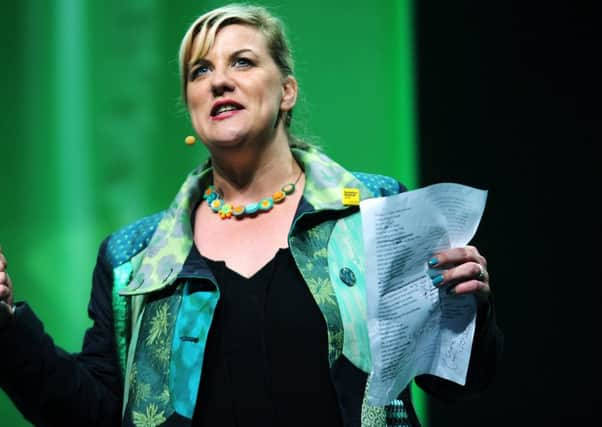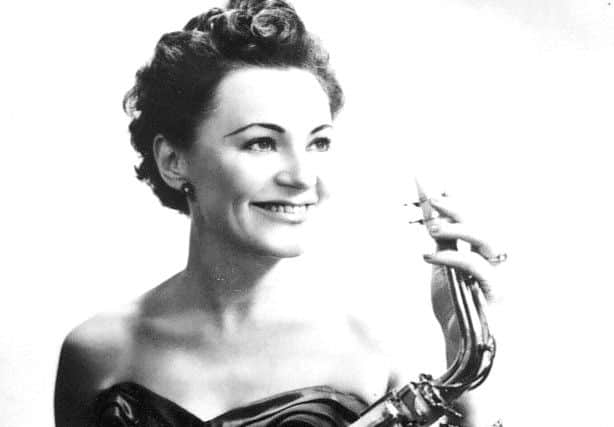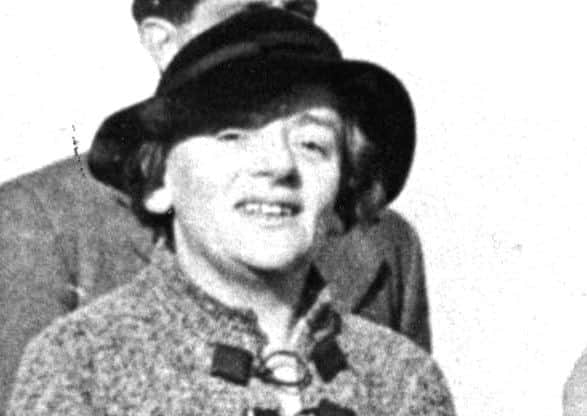Giving voice to the forgotten women from the North who made history


Have you heard the name Hilda James? How about Ivy Benson, or Dora Thewlis?
If you haven’t then you’re not alone. Yet the truth is these remarkable women, and many others like them, are in danger of slipping off the pages of history.
Advertisement
Hide AdAdvertisement
Hide AdSwimmer Hilda James introduced the American Crawl (or front crawl as it’s better known) to the UK and was nicknamed “the English Comet”. She held every British and European freestyle record in 1924 and was tipped to win an Olympic title but her mother refused to let her attend the Paris Olympics that same year. Instead, when she turned 21 she became a swimming teacher and took a job with Cunard.


Then there’s Dora Thewlis, a weaver from Huddersfield and an early suffragette, who took part in one of their protests – with her picture making it on to the front page of a national newspaper. And Ivy Benson, from Leeds, who took her all-female big band on tours around Europe and beyond.
They’re the among the many pioneering figures celebrated by stand-up comedian and performance poet Kate Fox in her new stage show, Where There’s Muck There’s Bras, in which she shares stories of some of the North’s forgotten women.
The tour starts at Wakefield’s Theatre Royal next month before wending its way across the North, taking in several more Yorkshire dates along the way.
Advertisement
Hide AdAdvertisement
Hide AdCommissioned for the Great Exhibition of the North, the show draws on class, gender and regional identity. It highlights the stories of a variety of Northern women, from literature to sport, science, politics, music and art.


It’s written and performed by Bradford-born Fox and also features actor Joanne Holden and aims to highlight the gender imbalance that still exists and also celebrate the array of talented women this country has produced. It is, she says, like a performance lecture that combines acting, comedy and poetry.
The idea for the show came on the back of her PhD into stand-up comedy and northerness. “It made me look at why quite often northern women are forgotten about. Obviously there are people like Victoria Wood, but if you look back to music hall stars like Hylda Baker they’re hardly heard of.
“Then I started looking at women in politics like Ellen Wilkinson, who helped lead the Jarrow March. I’ve spent time living in the North East and I’d never heard of her, so I wanted to do a show that’s funny but also thoughtful and helps bring some of these women back to life.”
Advertisement
Hide AdAdvertisement
Hide AdFox became fascinated by the women she came across during her research. “Hilda James’s story really got me. She was this celebrity swimmer and set all these records but it’s like she’s been wiped from history. I was just shocked that we don’t about these women.”
Dora Thewlis is another. “She was 17 when she travelled to London to take part in a political march and was arrested with fellow suffragettes for attempting to rush the House of Commons. She was known as the ‘Baby Suffragette’ when the picture of her arrest appeared in newspapers. In response to the nickname she said, ‘I am not a baby, in May next year I shall be 18. Surely, for a girl, that is a good age?’”
Another figure from the same era was the footballer Lily Parr. She was almost 6ft and reputedly had a harder shot than most male players. She played in the first international women’s football tournament between England and France in 1920, but then suffered when the FA later prevented women from playing on their member grounds (a ban that lasted held for 50 years).
Parr was a mental health nurse and the first female player to be included in the English Football Hall of Fame at the National Football Museum, yet only in recent years has her story become more widely known.
Advertisement
Hide AdAdvertisement
Hide AdOther people that Fox is keen to promote go back much further in time, like Hild of Whitby (later St Hilda).
“She was a key woman behind Whitby Abbey but she was more than that.
“She was trusted to be in charge of the crucial Synod of Whitby where it was decided whether we went with Celtic Christianity or Roman Christianity.
“It was like an even more contentious version of Brexit, and she was the woman holding that together. She’s not been completely forgotten but people don’t know much about her.”
Advertisement
Hide AdAdvertisement
Hide AdFox was surprised by just how many women have been overlooked over the years. “I thought there might be 10 or 20 women that we should have heard of but haven’t, but actually it’s more like hundreds. There’s people like Ivy Benson, a big band leader from Leeds, and Florrie Cole who was known as the best trumpeter at the time in the world.
“If you look around our cities at the statues it’s still nearly all men, though there’s a bit of a movement now to change that. We recently had the statue of Emmeline Pankhurst unveiled in Manchester, and we have the women of steel statue in Sheffield.
“So it feels what I’m doing is part of what’s been going on over the past few years where we’re saying, ‘hang on, look at these women we’ve forgotten.’”
Fox, who has lived in Thirsk for the past seven years, has spent time studying ‘northerness’ in all its manifest forms and she has encountered her own form of bias when she was working for a radio station in the North East and was told she couldn’t read the news bulletins because she was “too Northern”.
Advertisement
Hide AdAdvertisement
Hide Ad“I’ve always been interested in whose voices are heard and whose aren’t,” she says. “I spent the 90s, like a lot of women of my age, thinking all this had been sorted out, that we were equal and that feminism was old hat. Only to wake up and realise that there’s still a gender pay gap, that there are still issues facing older women getting on telly and massive issues facing women of colour. Now it’s like there’s been an awakening, and the #MeToo movement is part of it, but it’s taken until 2019 for this to happen.”
Even so, the notion that successful northern women don’t get the recognition they deserve persists today. “There was a Northern Powerhouse conference a few years ago with 99 speakers but only 15 were women and it still feels like we don’t hear northern women’s voices enough.”
Fox believes it’s important that we don’t forget these pioneers. “If we can’t even remember the women from the past what hope have we got of hearing voices now. When we hear northern voices it’s still mainly men we think of.
“The spokespeople for the North are mostly men, and I do think it’s a bigger issue in the North than in the South. I don’t want women to be thinking it’s ok to have councils where it’s nearly all men in suits.
Advertisement
Hide AdAdvertisement
Hide Ad“At a time when the North lags behind the South on all measures from employment to life expectancy, it’s time for women’s voices to be heard. The people who have written about, sung about and represented the North are mostly men.
“For the region’s full future potential to shine through we need to look at the people of our past and present with a different lens and writing a much broader story for the North.”
She hopes that her show can, in its own way, help put women back in the picture. “It sounds preachy when I talk about it but it’s not. I think comedy is a brilliant way of getting ideas across and I want to get the stories of these amazing women to as many people as possible, because they were amazing.”